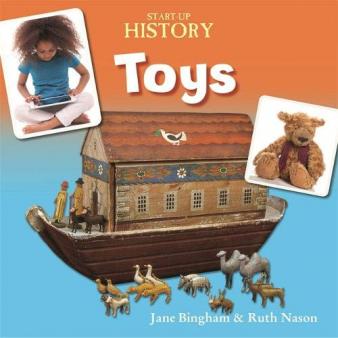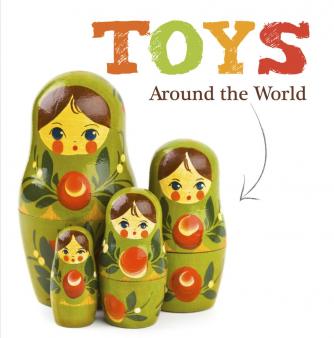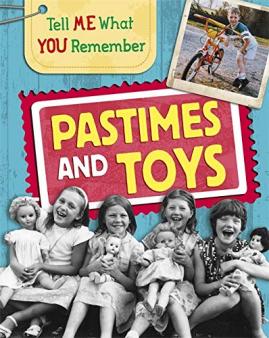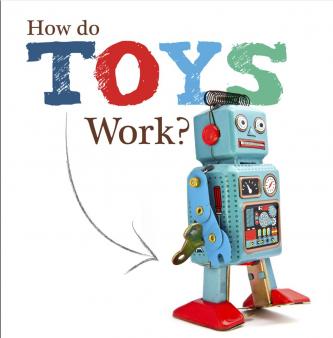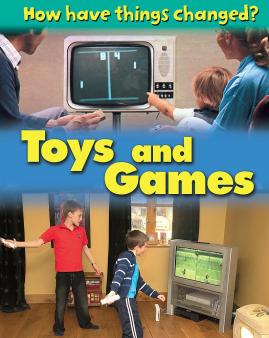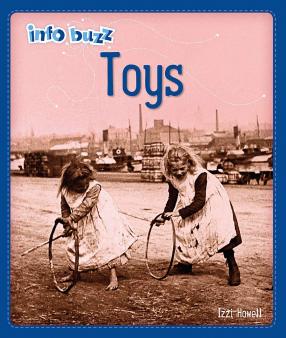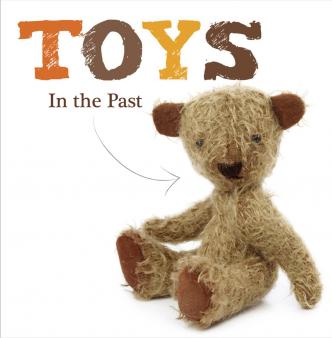History of toys
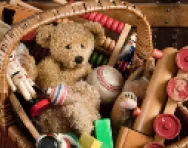
Toys are the objects that we play with. They can be anything from simple pieces of string and plastic to fancy dolls and flashy computers.
At any point in history, whether you’re looking at the Iron Age Celts or the World War II era, children played with toys. The toys may have looked different depending on what materials were available to make things from.
Top 10 facts
- Every civilisation at any time in history made toys for children to play with.
- Even though toys have changed throughout the ages, some toys have always been around but just look different now, such as dolls.
- The way toys have changed over the centuries shows what materials people had to work with, such as stone, wood, clay, iron or plastic.
- You can tell what era a toy came from by looking at what it was made from.
- Toys don’t have to be complicated – if you can make a game from a piece of string, it’s a toy!
- One of the oldest toys found in Britain is around 2,000 years old.
- To find out what toys children played with in past times, you can visit a museum and look at the exhibits of old toys.
- Just because a toy moves doesn’t mean it's modern – moving toys can have wheels and hinges instead of batteries.
- You can also ask your parents and grandparents about the toys they played with, and which ones were their favourites.
- Teddy bears were made in the early 1900s, and are named after Teddy Roosevelt, an American president.


Boost Your Child's Learning Today!
- Let us create a tailored plan for your child
- English & maths resources added each week to your plan
- Watch your child leap ahead in their learning & confidence
Did you know?
- One of the oldest toys in Britain was found near Stonehenge – it’s a carving of an animal, but we’re not sure what kind of animal it is. Archaeologists think it’s about 2,000 years old!
- Even a piece of string can be a toy! Tie both ends together to play a game called cat’s cradle.
- Toys can be any shape and size. Tiny finger puppets are toys, and so are large dollhouses.
- Children have always played with toys, whether they were born 2,000 years ago or last week. The toys have changed over the centuries in the way the look and what they’re made from – dolls that you may see in a museum about ancient Rome won’t look the same as the ones on sale in shops today, but children still play with dolls for the same reasons that children in ancient Rome did.
- The teddy bear was named after an American president, Teddy Roosevelt. The first teddy bears were made in America in 1902, and in Germany in 1903. The two makers didn’t know that they were each making teddy bears because they lived so far apart!
Have a look through the gallery and see if you can spot each of these toys:
- A Noah’s ark toy boat with animals, popular in Victorian times
- Toys from ancient Rome
- Dolls from ancient Roman and Greek times
- Toy cars and trucks
- A porcelain doll
- Sand toys: a bucket and spades
- A modern dolls' house
- Doll house toys
- A girl and her baby doll
- A motor loop baby toy
- The Nintendo Switch gaming system
- Building blocks
- A Rubik's Cube
- Toy railway carriages
- A spinning top
- Matryoshka dolls (Russian nesting or stacking dolls)
- A teddy bear
- A video game console
Gallery
About
Some toys move when you press a button, pull a cord or turn a handle or plug a co. Moving toys don’t have to have batteries or electricity to make them move, though – some toys are designed with levers, wheels and hinges so they move when you push a button or turn a handle, and some toys just need a bit of a tug with some string.
You can learn more about toys in lots of different ways. Visit a toy museum to look at toys that were made when your grandparents and parents were small, or ask them about the toys they like to play with when they were your age.
See if you can guess whether a toy is old or modern just by looking at it. Some things to think about are what it’s made from, how it’s painted or dressed, and how it works. An older toy might be made from metal, which most modern toys aren’t made from, and it might show characters from an old TV show or be dressed in a way that isn’t how we dress today.
Toys changed a lot after the television was invented. Toys would be made based on shows that children liked to watch, which still happens today.
Related Videos
Just for fun...
- Play a toy sorting game online
- Dress your own custom Barbie and her friends in an interactive game
- Try an online dressing-up activity
- Toy worksheets and activities to complete online
Best children's books about the history of toys
Find out more about the history of toys
Look at images of an ancient Egyptian doll and toys from Roman times, Tudor toys, Victorian toys, 20th-century toys and toys from around the world
The V&A has hundreds of pictures of toys from across history
Learn about how some of the most popular toys and games for children were invented
Information about toys with a long history, including hoops, marbles, yo-yos and kaleidoscopes
A history of popular toys from Babylonian times to the present
See a list of TIME Magazine's 100 Greatest Toys
Read about Tudor toys and Victorian games
From Barbie to LEGO, learn more about how your favourite toys were invented
Watch BBC videos about mechanical toys, games and toys in Roman times and find out how toys have changed in the last 100 years
The Rubik's Cube is one of the world's best-selling toys
See toys, games, and puzzles from the Smithsonian collections in the USA
Information about the history of popular games including Snakes & Ladders, marbles and Snobs
Look through pictures of toys, dolls, board games, video games, electronic games and other play-related artifacts from the National Museum of Play in the USA
Peer into beautiful dolls' houses, preserved at the V&A Museum of Childhood in London
Explore a range of Canadian-made and Canadian-played toys
A brief history of the doll's house
Find out more about wax dolls and other toys from the 19th and 20th centuries
See for yourself
Why not visit some of the UK's toy museums?
- V&A Museum of Childhood, London
- Pollocks Toy Museum, London
- House on the Hill Toy Museum, Stansted
- Brighton Toy and Model Museum
- Ilkley Toy Museum
- The Teddy Bear Museum, Dorchester
- Museum of Childhood, Edinburgh
Also see

Give your child a headstart
- FREE articles & expert information
- FREE resources & activities
- FREE homework help


















